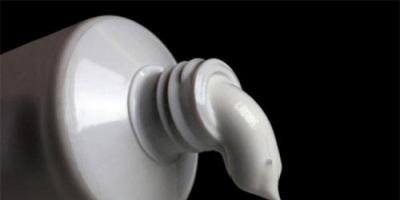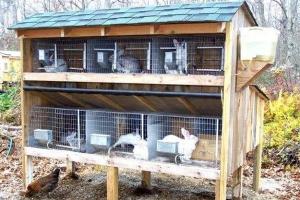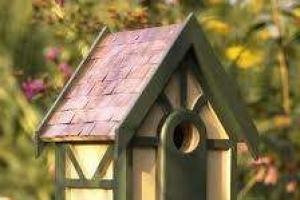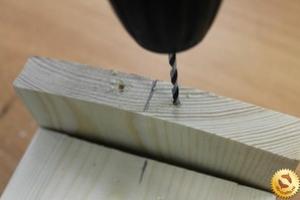Stretch ceilings have firmly chosen their place in apartments and houses. They are unpretentious in terms of cleaning. Many of them have an antistatic coating; dust does not settle on them. But this does not mean that there is no need to clean such a ceiling. Over time, dirt will climb to the top.

Cleaning Features
Stretch matte ceiling fits perfectly into almost any interior. But various kinds of contamination can spoil any positive impression of even the most sophisticated design. In addition, daily inhalation of dust does not promote health. Although the canvas has an antistatic effect, as on any other surface, dust will settle over time, and this effect does not protect against other types of dirt.

Splashes of champagne and soda, traces of the vital activity of various flies, lime condensation, soap deposits, traces of soot, smoke and grease - that’s not all possible contamination ceiling. Any housewife can wash them at home. The main thing is to know the characteristics of the material being cleaned.
Matte stretch ceiling Most often made from PVC film. This material does not tolerate hard brushes, abrasives or rough handling. Too much effort can cause cracks or even holes to form; in addition, the canvas can be inadvertently deformed. Such a surface cannot be cleaned with acetone-based products; the aggressive composition can “eat away” the coating.

There are several ways to clean the ceiling without streaks:
- Dry cleaning – the surface is wiped with a dry or slightly damp soft cloth or a special microfiber cloth. Typically used when you just need to brush off dust.
- Dry cleaning with a vacuum cleaner - you must use only a special attachment with very soft bristles.
- Wet cleaning can be done either with plain water (the temperature of which should not exceed 40 degrees) or with the help of special solutions (purchased or homemade).
- Steam cleaning – respectively, using a steam generator.

The surface of fabric ceilings is best cleaned using dry methods. When installing fabric sheets, it is necessary to clarify whether such a coating can withstand wet cleaning. Not all fabrics used for ceiling decoration are impregnated with special compounds. And if you do wet cleaning of such ceilings, you can inadvertently ruin appearance coverings.
How and what to wash?
Caring for a matte ceiling is not particularly difficult if it is located in the living room, hallway, or bedroom. Maintenance of the canvas can be done once every few months, once every six months. Depending on the load of these rooms.
Another thing is the ceilings in the kitchen and bathroom. These premises are characterized by increased “dirt accumulation”. Soap stains, limescale- quite often seen on ceilings in bathrooms. Traces of soot and grease remain on kitchen surfaces. And unscrupulous smokers can leave reminders of themselves in the form of traces of burning and smoke.


It is quite possible to clean the ceiling from any type of dirt using improvised means., and specifically designed for these purposes. To do this, just wash the ceiling and wipe it dry so that there are no traces of streaks left.
Means and tools
Regardless of the degree of contamination of the ceiling, to clean it you will need:
- rags (cotton, for these purposes you can use old bed linen for rags) or napkins (they should be soft, made of non-woven, lint-free materials, microfiber), soft sponges without a hard base;
- a good, stable stepladder (or a stand from which you certainly won’t fall);
- when cleaning with a vacuum cleaner, the device must be equipped with a special nozzle with soft bristles;
- water, cleaning agent or soap solution;
- spray bottle - it can be used to facilitate the application of diluted detergents, if they are not presented in the form of aerosols or sprays;
- using chemical substances(even if self-made) gloves will not be superfluous; they are simply necessary if the person cleaning the surface has a beautiful manicure on long nails;
- mop - it should be used extremely carefully. Its working crossbar must be completely covered with fabric, which, if something happens, will not slip or fall;
- steam generator, if such cleaning is practiced.


You can wash the stretch ceiling fabric even with ordinary water. It should be warm, but under no circumstances hot! Maximum 40 degrees. The temperature of any cleaning solution should not exceed this mark. You can enhance the effect of water using dishwashing detergent or soap (not very alkaline, for example, baby soap).
When using products that dissolve well and form abundant foam, you do not need to soak rags or sponges in the solution, but use foam. It will cope well even with old stains, and its effects will be less aggressive than the solution itself. For example, you can wash matte fabric using foam from diluted washing powder. Take hand washing powder (“automatic” is not suitable for these purposes), beat into foam using a mixer and apply to the surface.

Products for cleaning glass and mirrors have proven themselves, especially those that contain ammonia. Alcohol is great at removing fat. Apply, wait 15 minutes, then rinse and dry the surface. But when using glass cleaning products, you must always be careful about the composition. If it contains acetone, it should absolutely not be used.
“Mr. Muscle”, “Vanish” - have a fairly gentle composition, which nevertheless perfectly removes dirt. And of course, in hardware store You can purchase a product specially designed for cleaning suspended ceilings that will remove dirt, will not harm the coating and will not leave streaks.

Methods
You can remove dust from the matte canvas only with a dry soft cloth. The main thing is to wipe the surface correctly when cleaning, without pressing too hard, and do not rub with force. The ceiling is a structure made of a frame and stretched fabric. If the impact is too strong, the PVC film may become deformed - stretch into unsightly stripes, and wrinkles may form. Only professionals can eliminate this kind of defect.
When dry cleaning with a vacuum cleaner with a special attachment, there is no need to bring the device close to the ceiling. It should be kept at a small distance, 1-2 cm.


When cleaning the ceiling with a steam generator, you need to point the tool at the dirt. Steam the surface, then immediately remove any condensation that has formed by wiping it dry.
When wet cleaning with a mop, you should also exercise maximum caution. If the fabric suddenly slips off the working crossbar, then trouble will inevitably follow. The surface may be scratched. In addition, when using this tool, you cannot control the degree of impact, as when working with a rag, sponge or napkin.
If the ceiling is cleaned manually, then there should be no jewelry on your hands; it is best to wear gloves. Often, several rags or napkins may be needed to treat the entire surface of the ceiling. Some are for removing stains, others are for drying and eliminating possible stains.

It is better to clean the ceiling in fragments. One segment after another. It’s more convenient to move this way, besides, the canvas always gets dirty unevenly, in some places a more thorough and painstaking action may be needed, but in others one movement of your hand with a damp cloth is enough.

When there is a lot of dirt on the ceiling, general cleaning has not been carried out or has been done for a long time, for example, several years ago, decisive action is necessary.
The technology itself deep cleaning the canvas takes place in several stages:
- Dry clean first. Cobwebs are swept away from corners and lamps, dust is removed.
- Then a cleaning composition is applied to the surface.
- A certain amount of time is waited. (If the stains are very strong, the detergent must be fully effective. If the stains are small, then you can proceed to the next step).
- The composition is washed off from the canvas.
- Next comes drying. The surface is wiped with a dry cloth or rag. Until traces of soap stains are removed.

To ensure that the matte ceiling always pleases with its appearance, it is better to dry clean it regularly, and if stains appear, do not put off removing them until later, but remove them immediately while they are fresh and easy to clean.
For the living room, hall, bedroom and other rooms where dirt does not accumulate so much, it is enough to clean it once every six months or a year.
Do not forget to ventilate the room where the suspended ceiling is installed.
It is better to carry out all work in the first half of the day, when additional lighting is not required.

It is advisable to wash the suspended ceiling in the bathroom after each use. It is enough just to remove condensation and soap deposits - wipe dry with a cloth. If such cleaning is impossible, then you need to make it a rule to do it periodically general cleaning in the room, starting from the ceiling.
We will send the material to you by e-mail
P the canvas, which is the basis of the stretch ceiling, needs regular care. Whatever such a ceiling is treated with at the production stage, living conditions it will inevitably become covered with dirt. In order not to damage the fragile structure during cleaning, you need to know how to wash suspended ceilings at home correctly.
Everyone loved the ceilings stylish design and ease of operation. The answer to the question of how to wash suspended ceilings at home depends not on the installation technology, but on the material used as the panel.
- the area with built-in electrical appliances must be washed carefully, preferably without a mop;
- if water gets on the surface of the lamp, it must be quickly removed with a dry cloth;
- All work must be performed in the daytime in natural light, with the lamps turned off.

Types of pollution
In different rooms, different pollutants settle on the ceiling, which are removed using different means. The most popular types of pollution in residential areas:
- household dust is a multicomponent mixture that contains fabric fibers, flakes of dead human and animal skin, and particles coming from the street; this pollutant is most often characteristic of bedrooms and;
- grease is a typical contaminant for the kitchen ceiling; it always appears even in the most zealous housewife, since small splashes are very light and fly up high, while old fat dehydrated and very difficult to remove;
- soot is another typical “kitchen” pollutant; it appears where household natural gas or other fuel is used, that is, in rooms where a stove or fireplace is installed, and even the presence of soot does not get rid of it;
- traces of insects.
Cleaning products
To wash ceilings, use ordinary household cleaning compounds. Manufacturers recommend cleaning frosted ceilings with window products; this is convenient if the area is not large.
If there is any on the ceiling greasy spots, traces of insects or settled soot, it is better to use a dishwashing detergent that can dissolve fats and other organic matter. For residential premises, such products as Mister Muscle and others are sufficient.
Rags used in work must be light and plain, leaving no fibers. Viscose napkins are perfect for cleaning purposes. If you don’t want to bother yourself with sports exercises with a stepladder, it would be wise to use a mop. It is important to carefully operate this tool, otherwise an awkward movement will damage the blade.

Caring for ceilings is quite within the capabilities of the average person; no special skills are required for this. When washing ceilings, you don’t need to be afraid to put pressure on the canvas and stretch it, because these loads are working loads for it. However, do not press the fabric against the floor slab or wires located above the fabric. Although the tension is not terrible, hard elements hidden behind the decorative fabric can act as an abrasive.
Cleaning fabric ceiling can be done with more daring movements, since this material is quite durable, but with film ceilings you need to be as careful as possible. If unusual stains are present, such as champagne splashes, food particles or others, the contaminated area should be treated separately, remove the stains, and then wash the entire ceiling.
Stretch ceilings are very popular. This is due to their beautiful appearance and long service life. When starting cleaning after repairs, you need to know how to wash a suspended ceiling efficiently without streaks.
Features of washing a stretch ceiling
The need to remove dirt and dust from the ceiling surface does not arise often. But when starting this process, consider the main features of cleaning:
Cleaning is necessary for the coating in any of the rooms. In the bathroom during water procedures Drops fall on its surface, dry and leave marks. You have to wash the ceiling in the kitchen because of the accumulation of soot on it, and in the living room dust accumulates on the surface. When starting to clean, remember that any suspended ceiling requires careful treatment; the PVC material from which it is made is quite easy to damage.
How to wash a glossy stretch ceiling?
When cleaning glossy stretch ceilings, consider the tips for cleaning surfaces of this type, because numerous traces of stains can easily remain on them. Follow the basic rules for cleaning a glossy stretch ceiling; if you have never washed it, remember the recommendations:
- use a soft sponge
- use mechanical force with caution
- use harmless detergents
The stretch glossy top does not tolerate aggressive mechanical influence; hard brushes and fabrics can scratch it, deform it or even tear it. Therefore, you need to try to wash as carefully as possible, without applying excessive force, otherwise you risk completely ruining the surface.
It is advisable to remove rings and bracelets from your hands so as not to accidentally scratch the coating. Remember that you cannot use powder products, they leave scratches on the glossy surface. These detergents include:
- abrasives
- soda
- creams with solid particles
If you don’t know how to wash suspended ceilings with a glossy finish to avoid streaks, use a spray for glass surfaces or add ammonia to the water. Manufacturers recommend cleaning the tension glossy ceiling vacuum cleaner, but this method can only be used if the PVC film is securely fastened. It is advisable to put a soft cloth on the brush so as not to scratch the material.
How to wash a suspended ceiling with a matte finish?
You need to remember that you need to wash matte stretch ceilings no less carefully than glossy ones. Also avoid aggressive cleansers and mechanical damage. Here are the basic recommendations on how to properly wash such coatings:
- Do not use liquids containing alcohol
- do not use dry powders
- make circular movements with a rag
It’s convenient that suspended ceilings with a matte surface are easy to clean and there are no streaks left on them. Before you start cleaning, read the manufacturer's instructions; it should tell you how to wash suspended ceilings. If you are not confident in your abilities, specialists from a cleaning company can wash the suspended matte ceiling.
Matte finishes are easier to clean than glossy ceilings; just follow the basic rules and avoid heavy contamination of the surface. Like any cleaning, this procedure requires regularity. You can see how to wash suspended ceilings in the video.
Frequency of cleaning and how to remove stains?
How to wash suspended ceilings, what products to use - depends on the room in which the cleaning is carried out. In the living room, mostly dust accumulates on the surface. You can get rid of it using dry soft fabric, in this case, it doesn’t matter how to wash suspended ceilings; you can do it in a circular motion or parallel to one of the walls. Cleaning is carried out as it gets dirty.
In the kitchen, even with a hood, carbon deposits on surfaces, so you need to know how to clean suspended ceilings. Available for sale special means, which make the cleaning process easier, you can also dissolve the powder in water and gently wash the coating with this liquid. A matte ceiling for a kitchen is preferable; dirt is not so noticeable on it and stains do not remain. The surfaces in this room need to be cleaned at least once every six months, otherwise the light may dim and dirt will be difficult to remove.
Many apartment residents are interested in how to wash suspended ceilings in the bathroom. Cleaning this room is no different from washing surfaces in the rest of the apartment. Depending on the degree of contamination, you can clean the coating with a damp or dry sponge. You can wash the suspended matte ceiling with water containing liquid soap. Never use aggressive detergents, remember that the PVC tension surface is very sensitive to aggressive environments.
Clean the surface regularly, as it can be difficult or even impossible to properly wash a very dirty surface. If the suspended ceilings in the apartment have lost their luster or brightness, treat them with a special product that can be found in a hardware store. Be sure to test the detergent in the most inconspicuous place; you should know how suspended ceilings will react to it. Make sure that the surface is not yellowed or deformed.
Stretch ceilings are used not only in apartments, but also in offices. This type of coating is durable, looks beautiful and allows you to experiment with design. But remember that the PVC surface needs regular high-quality cleaning, which will preserve the presentable appearance of the ceiling for a long time.
How to wash a glossy stretch ceiling without streaks at home - the most actual question after repair. Few people currently cover the ceiling with wallpaper; it is much more convenient and practical to make a suspended ceiling. This allows you to choose a wide variety of colors and shades, place lighting as you please, and hide possible unevenness.

Washing the ceiling is not the easiest task, because it is simply inconvenient. It is important to know what you can use to wash the tension covering and what you should avoid.
Once you put wallpaper on the ceiling, you don’t have to touch it anymore. Tension coating is more demanding to maintain, especially for the first time after repair.
When builders stretch the material, they touch it with their hands, even if they are wearing gloves, marks remain.
Glossy surfaces make any dirt visible, so after all work is completed, it must be washed. Fingerprints and other traces create a not very pleasant picture, which becomes especially noticeable in daylight. Moreover, after completion construction work Such a ceiling must be wiped clean of dust, because it attracts small particles well.

After the renovation, there was a lot of dust and dirt left, which is even on the ceiling.
It's time to put everything in order. Stretch ceilings are quite capricious, so not all products can be used to wash them. It is better to stock up on certain equipment in advance so that nothing else distracts you during cleaning.
- A ladder or stepladder, without which it is simply impossible to clean the ceiling efficiently.
- Medium hard sponges.
- Soft natural rags.
- Non-abrasive detergent.
- Vacuum cleaner with a soft nozzle.
As mentioned above, any product is suitable for washing a stretch ceiling. It is best to wash the glossy coating with plain water or soapy water (only mild baby soap is suitable).
They will not damage the fine structure and will not spoil the appearance. To remove more severe stains, a soft cloth can be moistened with liquid and, using little effort, remove the stain. After the entire ceiling has been treated with the solution, it must be wiped with a dry cloth to remove any possible stains.
The soap solution has one small drawback: despite the fact that it removes visible dirt from hands well, it can cause streaks. You can remove them with ammonia.

- alcohol is diluted in water to obtain a weak concentration;
- moisten a sponge or soft cloth in the resulting solution and wipe the desired area of the ceiling;
- at the end ceiling covering Be sure to wipe with a dry cloth.
To make sure that ammonia interacts well with the ceiling coating, it is best to test it on a small area first. Therefore, before the workers leave, ask them to leave a small piece of material.
Stretch ceilings are modern, stylish and beautiful. With proper care, it does not change its color, does not stretch or deform.
The lamps can be arranged as conveniently for the owners, without the need to build additional niches and create additional clutter. In order for a suspended ceiling to serve faithfully for a long time, it is very important to take care of it. Such surfaces can only be washed with certain products.
The shops household chemicals can offer several options for products that easily remove any dirt from the surface, without leaving streaks and changing the appearance of the ceiling. But some products should absolutely not be used, unless you value your repairs and the ceiling.
If serious contamination is found on the ceiling, for example from soot, then do not rush to use aggressive chemicals.
Washing powder of any kind, be it baby or mild, is not suitable for washing suspended ceilings. The granular substance contains particles that can easily damage the coating. It's not worth experimenting.
Tar or laundry soap
After repairs, traces of hands or other objects may remain on the ceiling. building materials, even from paint. Out of ignorance, many rush to remove dirt with the first means that come to hand, and this is not at all correct. We are used to that laundry soap- This is a universal product that can cope with many contaminants without any problems.
In this case, it can only ruin everything. The fact is that for a stretch ceiling, laundry or tar soap is a fairly aggressive agent that can lead to deformation of the material and a change in its color. Therefore, you should definitely give it up and give preference to softer products, or it’s better to just use plain water.
Mustard
Some craftsmen advise washing the suspended ceiling with food mustard. Arguing this by the fact that it does not contain any aggressive substances and in general it is a product and cannot cause visible damage.
This is a big misconception; mustard can actually be used to clean specific stains, but they should not be on a suspended ceiling. Not only will it not remove stains from the coating, but on the contrary, it will leave behind bright marks and can lead to deformation. If the stretch ceiling is black, then after contact with mustard, lighter spots will remain in certain places.
Baking soda
Often, soda is used to remove any stains; it is combined with other substances and the result is quite effective remedy. In this case, this option cannot be used categorically. Soda is small grains, stretch ceiling is a very soft and delicate coating.
Upon contact with food product Scratches may remain on the material, i.e. the gloss will be irrevocably damaged. If stains can be easily removed with water, then scratches will not go away, and on a shiny surface it will be very noticeable. In addition, soda can leave not only scratches, but also deformed areas.
Acetone
Acetone is a product that perfectly removes traces of paint from any surface. Indeed, during repairs, there are often cases when traces of paint appear on a suspended ceiling, but the usual means of removing it must absolutely not be used. Acetone is a very aggressive product that can leave an area of more light color or lead to destruction of delicate fabric fibers.
It’s scary to imagine what will happen if this substance comes into contact with the coating of a stretch ceiling. Most likely there will be a large hole on it and it will have to be redone. If you want to know more precisely what can happen, conduct an experiment on small area material that naturally should not be on the ceiling.
Chlorine
Chlorine is a substance that modern housewives have been trying to get rid of for a long time. It is dangerous for the skin of the hands and respiratory organs.
It causes far more problems than benefits. Chlorine with prolonged exposure easily corrodes the structure of the fabric. Upon contact with a suspended ceiling, a hole may remain on the surface, and the material around it will lose its color.
Video: how to wash a glossy stretch ceiling without streaks at home?

Stretch ceilings in the kitchen suffer the most. Even despite the presence of a hood, over time a noticeable greasy stain forms on the coating. That is why the ceilings in the kitchen should be washed most often, so that dirt does not have time to accumulate and the cleaning process does not ultimately take much time.
The ceiling in the kitchen is washed with the same means as in other rooms.
It is unacceptable to use various degreasers. To remove stains, a soap solution or plain water is sufficient. After all visible dirt has been washed, the ceiling is carefully wiped with a clean damp cloth and then wiped dry.
Modern stretch ceilings are treated with special compounds that prevent dust from sticking, so you don’t have to wash it very often. Once every six months may be quite enough; in the kitchen, the ceiling should be washed once every 3 months.

You have a beautiful stretch ceiling installed, enough time has passed, and you want to know how to wash glossy stretch ceilings without streaks? We will help you sort this out.
A little about stretch ceilings
The convenience and advantages of suspended ceilings lie in their long term operation, quick installation and the ability to hide flaws. The disadvantages of such ceilings are their price (relatively expensive) and cleaning (although it is rarely done) at a sufficient height.
Stretch ceilings can be glossy or matte, made of PVC film or impregnated fabric, but both have antistatic properties (therefore they cannot be cleaned daily). True, the location and glossiness of the coating or its absence also determine the frequency of cleaning.

You can care for a stretch ceiling using a dry or wet method. After cleaning with a damp cloth, be sure to rub it dry.
Tips on how to wash a glossy stretch ceiling
Washing suspended ceilings is not an easy process. It requires time and accuracy.
Those who are not able to stand at a height for a long time, rubbing the surface, can turn to special services for help. Professionals will clean the ceiling efficiently (using special cleaning products).

For those who are planning to carry out the maintenance themselves, advice: pick up the certificate issued after installation. It is in it that they are given detailed recommendations for coating care.
Here are the options for how and what is the best way to wash a glossy stretch ceiling:
- To clean dust deposits in rooms or on the balcony, it is better to dry clean with a lint-free soft cloth.
- For less frequent wet cleaning, soap and chemical solutions, special products in sprays (you can rub soap residues, thoroughly dissolving them in water, you can also dissolve laundry powders, you can use Mr. Proper, Fairy, other dishwashing liquids and glass cleaners).
- For deposits that appear on a glossy stretch ceiling from burning, soot, and water stains, a ten percent ammonia alcohol solution is used.
- Specially produced products for washing suspended ceilings.
The question is whether it is possible to wash a glossy stretch ceiling. The housewife is often faced with another question: how to carry out cleaning without harming the dense, but at the same time delicate texture of the ceiling fabric?

The answer is simple:
- Never use abrasive products that can scratch (soda, dry mixtures) for washing;
- Do not use brushes or other objects with a very dense pile texture;
- cleaning is not carried out using piercing/cutting objects, including those with convex rings or bracelets;
- acetone-containing substances are not used so that the ceiling does not lose color, or worse, become deformed;
- do not clean with force (never press on the tension surface, especially if you use brushes or a special mop for washing).
A separate issue is cleaning the suspended ceiling in the kitchen.
How to wash a glossy stretch ceiling in the kitchen?
Stretch ceilings in the kitchen get dirty more and faster than in other rooms. Especially if they are glossy. On the balcony, sedimentation cannot be avoided either, but it will be abundant with dust.
And the frequency of dry cleaning, especially in the spring-summer period, will exceed the frequency of cleaning during the rest of the year. The frequency of wet cleaning with a suspended ceiling in the bathroom will also be high. No matter how carefully you try to wash or shower.

In the kitchen, you can and should install a hood for cleanliness and maximum removal of odors and precipitation. But this will not fully save you from cleaning.
Let's figure out how to wash the suspended ceiling - gloss in the kitchen area?
Care here will be carried out using both methods of cleaning, but more often - wet.

Dry cleaning is carried out in the kitchen after small food preparations, if the sediment does not contain droplets of grease. Taking a soft, dry cloth, preferably microfiber, with light movements you need to “brush off” the sediment.
But if the sediment is not only dust-containing, but also has all the consequences of a cook working for many hours and many days, and the stretch ceiling no longer seems glossy, wet cleaning cannot be avoided.
To wash the ceiling in the kitchen, you will have to use ammonia, soapy, well-diluted water (just remember to use soapy water, not soapy slurry), preventing the appearance of streaks on the ceiling after cleaning.

Also, in order to avoid “post-harvest” stains, in addition to the wet cleaning performed, it is imperative to rub it all. The work is not fast and painstaking, like when cleaning glass.
Having studied in detail how to care for a glossy stretch ceiling and how often it is cleaned, we wish you successful work in this direction, so that every guest who enters says that everything in this house shines.
Stretch ceilings are now perhaps the most popular option for finishing the ceiling surface. This is not surprising, because they combine sophistication and practicality. In addition, there is a lot of space for various design solutions.
Their practicality lies in the fact that they will serve you for many years without needing special care. And, according to some manufacturers, they don’t even need to be washed. Although this is not entirely true.

Dry and wet cleaning will still be needed.
Even though the surface is treated with an antistatic compound, dust is still impossible to defeat without resorting to cleaning. In addition, there may be other contaminants that will also have to be dealt with. We will tell you how to wash suspended ceilings at home and how to carry out dry cleaning in this article.
Types of suspended ceilings
Before we tell you how to wash suspended ceilings, it should be said that they are divided into two groups according to the material they are made of: fabric and PVC. And also into two surface groups: glossy and matte.
Fabric ceilings are more expensive because they are more durable and can be seamless across the entire tensile surface. The fabric is able to retain water without letting it escape if you are suddenly flooded by your neighbors on the floor above.
PVC ceilings are cheaper, but they have the advantage that their color range is more varied. In addition, they can imitate the night and day skies. It looks especially impressive with properly installed and selected lighting.

There is no need to tell anyone what matte and glossy surfaces are. Let's just say that the matte ceiling resembles a very well-plastered surface.
The most common contaminants
In addition to ordinary dust, which can be easily dealt with, other types of contaminants can occur on stretch ceilings. If you take different rooms in the apartment, the list will be like this.
- Kitchen - soot and grease stains.
- Bathroom - stains from splashed water.
- Children's room - stains from various children's toys, for example, water pistols and other sprinklers.
- Living room - traces of an incorrectly opened bottle of champagne or sparkling water.
Read also: How to remove old paint what types of wash are there?

It’s not that difficult to deal with all this pollution. To do this, you need to know how and with what to wash. It is also important to know what not to do when caring for stretch ceilings.
Although stretch ceilings are made of durable material, the use of certain care products can damage them. Cannot be used:
- abrasives and powders,
- acetone and other solvents,
- chlorine-containing agents and acids,
- washcloths.
Sometimes some people ask the question: is it possible to wash suspended ceilings? hot water? The answer to this question is also negative.
Their surface can only be washed with warm water. Failure to comply with these conditions may cause serious damage to the surface that can no longer be restored. Acetone, for example, can easily burn them, and scratch abrasive particles.
How to wash a glossy stretch ceiling
The main distinguishing feature of gloss is its shine, and on such a surface all the stains remaining after wet cleaning, if it was carried out incorrectly, are clearly visible. What will you need for wet cleaning?
- soft microfiber cloth, suede or sponge,
- soap solution,
- clean warm water,
- a mop or stepladder if the ceilings are high,
- glass cleaner.
Regular dust, if there are no other contaminants on the surface, can be easily removed. This does not require additional detergents, just plain warm water.
The main question that housewives have before wet cleaning a glossy ceiling is: how to wash stretch ceilings so that there are no streaks left. The most commonly used glass cleaners are glass cleaners. When purchasing them and before using them, be sure to read the composition of the product; some of them contain acetone.

Do not immediately start washing the entire surface. First you should try the product on a small, inconspicuous area.
And if after using it the surface does not wrinkle, bubbles do not appear, etc., the product can be used on the entire surface. It is also not worth using such products to wash fabric suspended ceilings, since they are more susceptible to destruction by chemicals.
In addition, to wash without streaks and add shine to the ceiling, you can use a soap solution containing ammonia or ethyl alcohol. It is also possible to use regular vodka.
And now a little about how to wash glossy stretch ceilings. The surface should be washed, moving along the perimeter, from one corner to another.
If the structure consists of several sections, then cleaning should be carried out in sections. Movements should be soft and smooth, without strong pressure that could harm the ceiling. Do not use circular movements, which can also cause circular white marks.

To remove stains from the ceiling, you should also not use much force.
Since this will not remove the stain, you can cause damage to the ceiling in the form of scratches and deformation. When using a mop, you need to make sure that the limb with which you will wash the ceiling is completely covered with a rag. And if you use a stepladder, be sure to secure it well to avoid injury and not spoil the glossy surface.
How to wash matte stretch ceilings
The matte surface is not as capricious as the glossy one. Stains and dust are practically invisible on it. But this does not mean that washing should be done without caution.
They are also afraid of chemicals and acetone. So you need to wash it with the same products as glossy ones. But there is no need for polishing agents such as alcohol solutions.
Unlike glossy, matte stretch ceilings can also be cleaned with a vacuum cleaner.
But there are some limitations here. The suction power of the vacuum cleaner should be minimal to prevent sagging. And the vacuum cleaner brush should not touch the surface.

One of the newfangled design options for ceilings are tension structures, presented in a wide variety of textures, compositions and colors. They fit perfectly into style trends and emphasize the individuality and taste of the owners. You can achieve the aesthetic beauty of a stretch ceiling for a long period of time proper care behind the surface, maintaining it in proper condition. Sometimes specialists from cleaning companies are invited to wash or clean, but this process is not so complicated and you can do it yourself.
How to wash the ceiling
When the time has come to put the ceiling in order, you should be well prepared for the work and purchase the necessary supplies. Agree that the ceiling is washed quite rarely, so it’s better to spend money and buy high-quality cleaning and other accessories than to risk damaging such a beautiful and expensive surface.
What supplies will you need for cleaning?
Depending on the type of dirt and surface for cleaning, you may need flannel rags, soft-bristled brushes, foam sponges, wipes for dry cleaning, a basin or bucket for diluting soap suds and, of course, a stepladder so that you can easily reach every corner of the surface .
If you simply want to remove a layer of dust from the ceiling in the living room or clean it of sediment after repairs, you can use a vacuum cleaner, but you need to choose an attachment that will not damage the surface, for example, a very soft fluffy brush (we will look at tips on how to properly clean the ceiling with a vacuum cleaner).
Sometimes, to simplify cleaning or in the case of very high ceilings, owners resort to using a mop by wrapping a damp cloth around it. In the case of tension fabrics, such a life hack is a risky undertaking, since one careless movement (strong emphasis, jerk) can lead to damage to the surface. Therefore, it is worth gaining strength, patience and carrying out handmade using the above accessories.


Choosing detergents
To properly wash the ceiling, it is better to use special compounds sold in hardware stores. The manufacturer or company that installed the structure will usually indicate what is best for a particular material. You can also use cleaning solutions mirror surfaces and windows. Their advantage is the presence of ammonia, which will ensure complete absence of stains after cleaning. Sometimes housewives make such a solution themselves, diluting ammonia with water (1:10).
The simplest and affordable way– the use of liquid dishwashing compounds, but first you need to make sure that it does not contain abrasive substances or granular particles.
You can use homemade solution: powder or finely ground soap is diluted in water (it is better to avoid 72% household soap, as it contains a lot of alkali). At the end of the washing procedure, everything should be processed clean water, and then remove the moisture with napkins.


How to wash different surfaces
Considering the fact that tension fabrics are made from various materials and have a variety of surfaces, each of them requires a separate approach. Next, we will consider expert advice, following which you can easily restore the original beauty of the surface.
Washing a glossy stretch ceiling without streaks
The glossy ceiling surface certainly looks excellent and is found quite often in stylish modern interiors. Its main advantage lies in its shiny reflective surface, which creates unparalleled effects, but only if it is spotlessly clean. The most important thing in cleaning a glossy ceiling is to carry out the work in such a way that there is no trace left of stains, which are very noticeable on a shiny surface. First you need to wash with the product in a circular, light motion without pressing. Then, to restore shine, it doesn’t hurt to treat it with a 10% ammonia solution, and finally, go over it again with a dry cloth.


How to wash a matte stretch ceiling
The matte surface has its advantages, in particular, the ability to bring calm and tranquility to any interior. It suppresses any reflections and looks like a classic whitewash. The only caution concerns the design of such canvases kitchen ceilings– according to experts, soot and greasy stains that may arise during the cooking process are quite difficult to remove from a rough surface.
On matte ceilings the stains are noticeable much less, which simplifies the matter somewhat. However, cleaning must also be carried out carefully and efficiently. Use a regular soap (powder) solution, diluted in warm water(+30…+40С). Here the preferred movements are from side to side (from right to left and back). If there is a joint between the panels in the design, then the seam must be washed lengthwise. Next, we also rinse the ceiling with water and wipe it off.

How to wash fabric stretch ceilings
Fabric stretch ceilings are often chosen when decorating luxury interiors. They resemble in appearance decorative plaster, and the textured surface makes the ceiling visually absolutely smooth. Please note that not every fabric can boast of being waterproof, and it is better to clean them in a dry way without using water, just with napkins or special soft brushes (in stores there are models for cleaning complex ceiling surfaces with curves and cornices).
A special feature of the fabric tension surface is its fragility, so cleaning should be carried out with extreme caution. Under no circumstances should you rub in one place for a long time, trying to remove an old stain - this can lead to a change in structure and loss of appearance. Such fabrics should be wiped carefully, without using force. It is better to avoid circular movements in favor of longitudinal ones, which will provide better cleaning fabrics.

How to eliminate contamination after global renovation
Upon completion repair work in the room or carrying out redevelopment with dismantling ceiling panel A thick layer of dust may form, as well as remnants of hardened soil mortar. It is better to remove dust with a vacuum cleaner, because wet cleaning of dusty areas only complicates the process. You also need to work with the vacuum cleaner carefully - its attachment in the form of a soft brush should not touch the surface of the ceiling during operation, but should be at a distance of 2-3 cm from it. In this case, you need to select the average suction mode. If you simply start moving the nozzle along the tension fabric or set the high mode, you risk ending up with a sagging surface, which will immediately lose its aesthetic value.
Another important point– removal of hardened primer. You should not try to scrape it off the surface - this will certainly lead to deformation. The area should be soaked in a soap or powder solution, left to dry for a while, and then, avoiding pressure, wiped with a damp cloth.

How to wash a suspended ceiling in the kitchen
The kitchen is especially a room where dirt often forms not only on the floor and walls, but also on ceiling surfaces. As we have already said, matte hanging structures are not the most the best option, you should give preference to a glossy surface, especially since it can create the visual effect of increasing space.
If you find old, contaminated stains from grease or carbon deposits, there is no need to try to eliminate them by thorough rubbing; it is better to moisten them with soapy water, allowing them to soak, and then wipe with a damp sponge. Experts warn that using a soda solution, which housewives often use to clean their kitchens, is highly discouraged, as it can negatively affect the aesthetic characteristics of the coating. When the local problem has been eliminated, you can begin to wash the entire surface using the methods discussed above.

What not to do
To summarize, we can say that washing a suspended ceiling at home is not at all difficult if you follow basic precautions, namely:
- Do not use abrasive solutions, especially those containing acetone - it can damage the material, ruining its appearance. It is best to test the product in a small, poorly visible area before work;
— Under no circumstances should the use of hard brushes be allowed, even on very old stains - they must be soaked and then washed using soft, gentle products;
— If you prefer to clean with a mop, be extremely careful with sudden movements to avoid deformation of the canvas;
— All existing seams on the ceiling surface should be processed not in a circular motion or crosswise, but exclusively lengthwise, in order to avoid the accumulation of dirt at the joints.
Be sure to take into account the properties of different fabrics, choose the right accessories and cleaning products. You should also monitor the possible appearance of stains in certain places. Sometimes the cause may be carbon deposits or leaking pipes from the upper floors. The first thing to do is eliminate the potential threat.
Stretch ceilings - magnificent modern finishing material, which is able to give even the most ordinary interior its own zest, and correct operation and care will help preserve all the charm of the design for many years.









